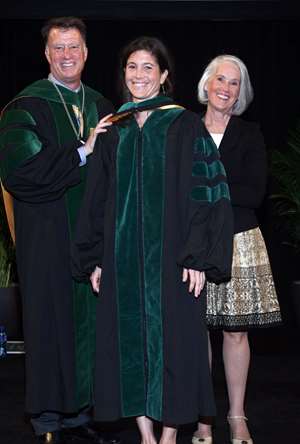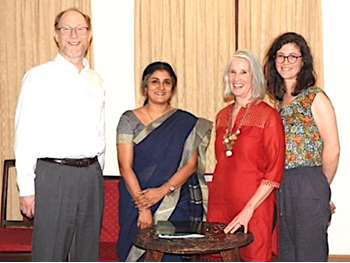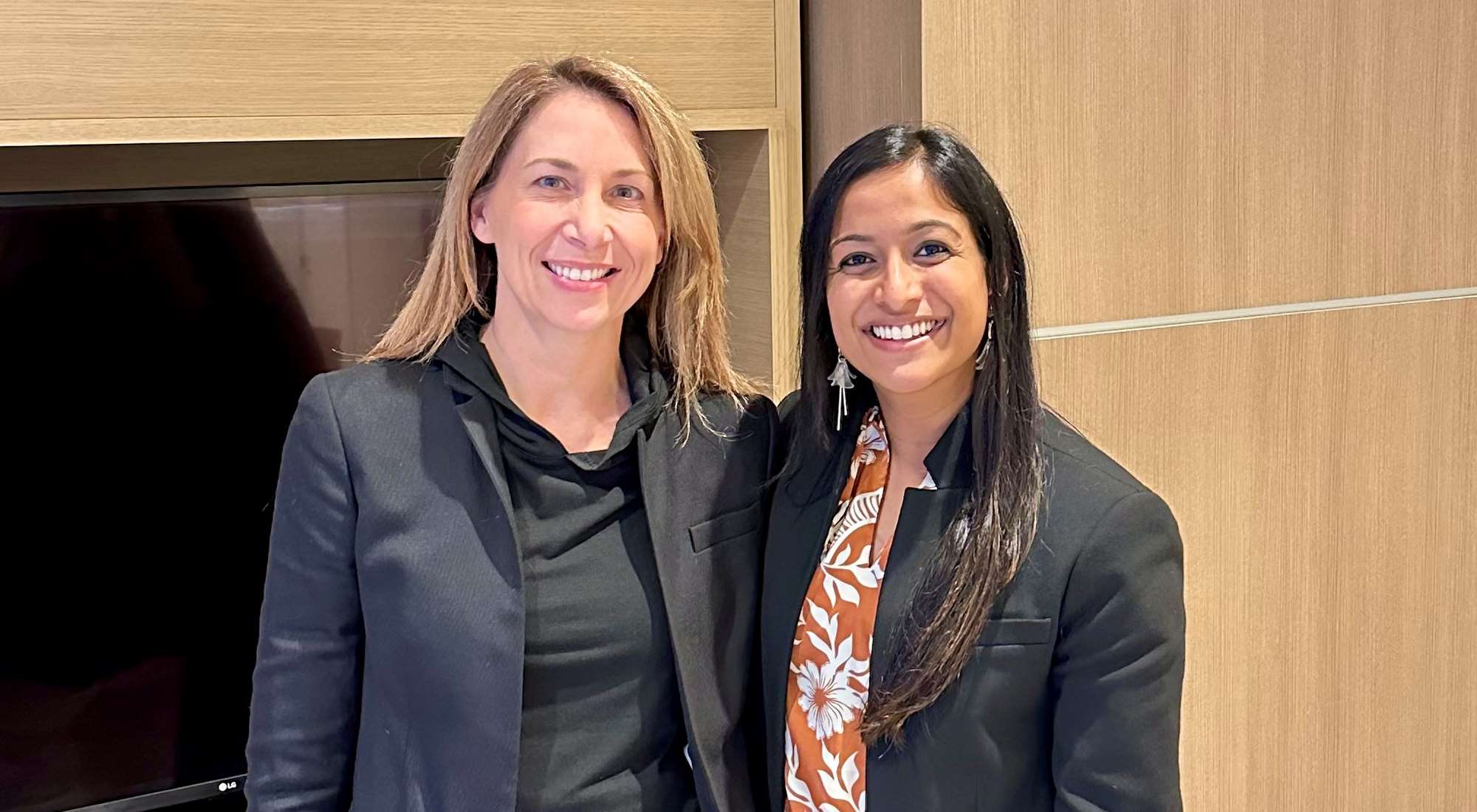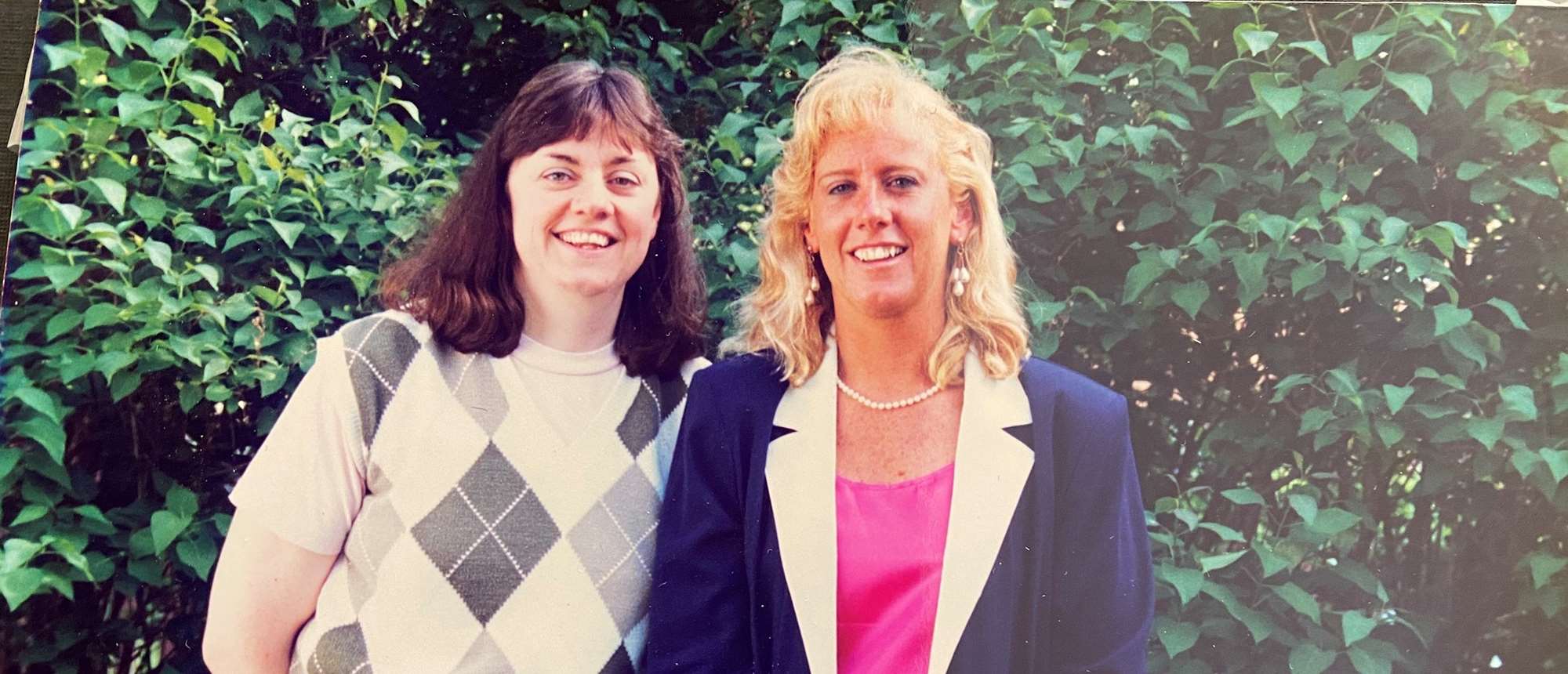199 Years of Service: A Family's Legacy of Medical Work Continues

"I remember so well the oppressive heat when I disembarked from the train and there was [my aunt] Dr. Ida waiting for me, fanning, fanning away. As we were waiting for my baggage to appear, she kept saying, 'Jeldi, Jeldi!' – that means 'Hurry, hurry!' – 'Let’s get out of this heat.' I remember thinking to myself that if she has lived here all these years and she finds it hot too, I expect I'll survive."
This account from radiologist and medical missionary Dr. Ida B. Scudder, recorded by the First Congregational Church of Greenwich in 1979, marked her first entry to India from the U.S. in the 1930s. Dr. Ida B., as she was known, would go on to spend over 30 years of service there and establish the radiation oncology department at the Christian Medical College and Hospital (CMC) in Vellore, India, an institution founded in 1900 by her aunt, Dr. Ida S. Scudder.
Today, CMC consists of a network of hospitals, clinics and the medical college. It is one of the largest medical centers in India, boasting 2,300 beds and accepting nearly 9,000 outpatients per day. Its mission remains true to its founder's original vision to provide high-quality health care to all people regardless of religion, gender, income or social status.
To this day, many physicians and staff remember Dr. Ida B. Scudder fondly and have a deep respect for the Scudder mission to serve the "healing ministry of Christ." But the Scudder family call to serve didn't begin – or end – with the aunt-niece pair. Instead, this Scudder legacy of medical service extends back much further and continues today with many of their descendants, including a few with connections to the Medical College of Wisconsin (MCW).
A solid foundation of service
In 1819, Dr. Ida S. Scudder's grandfather, Rev. Dr. John Scudder, Sr., traveled to what is today known as Sri Lanka, where he founded the first western medical mission in Asia. Then in 1836, he became the first U.S. medical missionary in India, setting the groundwork that would amount to more than 1,100 combined years of missionary service.
In fact, between 1819 and Dr. Ida B. Scudder's arrival to India, four generations of Scudders served as medical missionaries in India. Their influence there is extensive and can be seen in Ranipet's Scudder Memorial Hospital (SMH) and in CMC's significant medical achievements (doctors there were the first in the world to perform reconstructive surgery for leprosy) and its focus on community works. By the time the younger Dr. Ida Scudder left India in 1970, CMC was run completely by Indian faculty and staff.
"When I left, there was a to-do for me, and one of the speakers said, 'This is the end of an era,' you see, because I was the last Scudder to work in India," she recollected in 1979. "But my answer to him was, 'It's the beginning of a new era now; you don't need Scudders and westerners anymore.'" But as it happened, Dr. Ida B. Scudder would not be the last Scudder physician to work in India.
 Today, Scudders descendants can be found throughout the U.S., including in Wisconsin. Jim Taylor, MD, a radiation oncologist, and his daughter Allison, a first-year resident in medicine-anesthesia at MCW, are direct descendants of this family line. Susan Taylor, MD, Allison's mother, is an associate professor of anesthesiology at MCW and is also involved with her in-laws' mission of service.
Today, Scudders descendants can be found throughout the U.S., including in Wisconsin. Jim Taylor, MD, a radiation oncologist, and his daughter Allison, a first-year resident in medicine-anesthesia at MCW, are direct descendants of this family line. Susan Taylor, MD, Allison's mother, is an associate professor of anesthesiology at MCW and is also involved with her in-laws' mission of service.
"My husband became more acquainted with the Scudder family history about five years ago when he went to India, initially as an observer," Dr. Susan Taylor says. "The Scudder Memorial Hospital had renewed close engagement with the Scudders, and he became involved in philanthropic efforts with SMH and CMC."
Dr. Jim Taylor currently serves on the boards of both CMC Vellore and the Scudder Association, travels to India annually and has connected MCW's radiation oncology department with Dr. Thomas Ram, CMC professor of radiation oncology and secretary of its governing body, the CMC Council.
Meanwhile, Dr. Susan Taylor has become increasingly involved in establishing educational partnerships between CMC and MCW, and Allison has trained in India.
Building a partnership for the future
In January 2018, Allison spent a month rotating through CMC's Infectious Disease, Intensive Care and Low Cost Effective Care clinics during her fourth-year MCW elective. While Allison's international travel and work experience is extensive – she studied abroad in Belgium in high school, worked in Rwanda as a translator with Engineers without Borders in college and taught English in France and Spain – she says what her family has learned about their specific philanthropic legacy in India has become more important to her since starting medical school.
"Independent of the Scudder experience, I was encouraged throughout my life to explore languages and cultural exchange," Allison says. "Learning more about the Scudder history reinforces, to a large extent, these goals I had developed and what it means to devote myself totally in service to others."
During her January trip, Allison received medical training in addition to learning about CMC's reimbursement models and organizational systems.
"CMC provides high-quality, advanced care for people who can afford it and those who cannot," she reflects. "It operates as a hub-and-spoke model and funds mission-type clinics that address access to care for the urban and rural poor. These clinics depend on the main hospital for funding and use sliding scales and metrics to determine reimbursements." Allison says she was able to accompany health care providers in clinics in both rural and urban settings, mobile clinics, as well as low-cost service locations for the poor and patients living in urban slums.
"CMC takes a unique approach to education and training," Allison adds. "It's a high level of training, such that I could continue to learn just as I would here in the U.S. They train physicians from other countries, including low-income countries, and subsidize housing costs for physicians in training. These doctors can then go home and provide high-quality care for their patients."
Dr. Susan Taylor was also in Vellore in January. She says CMC presents a unique opportunity to MCW students for collaborative educational exchange.
"We are having conversations now about ways MCW and CMC may collaborate in the areas of education, research and service," Dr. Taylor says. She hopes students can share ideas for improving health care in both low- and high-resource environments.
"I had the opportunity to visit the operating rooms there and saw a resection of an esophageal duplication cyst performed with utmost skill and state-of-the-art technology. Nearby, the 12th cesarean section of the day was being performed under spinal anesthesia," Dr. Taylor recalls. "CMC’s ability to deliver efficient, high-quality primary and preventive care is without equal. Their faculty works with students from all around the globe and hosts more than 400 international trainees each year in multiple specialties, making it an ideal partner for MCW."
 Thanks to the Taylor family, MCW and CMC now have a memorandum of understanding – signed by Dr. Susan Taylor and CMC's Dr. Anna B. Pulimood – to move toward sharing and exchanging ideas, collaborating on resident exchange programs and seeking to partner in other areas of education and research. Dr. Susan Taylor notes this year marks CMC's 100th anniversary of medical education and that the memorandum of understanding is a special milestone as CMC formats their model of instruction for the next 100 years.
Thanks to the Taylor family, MCW and CMC now have a memorandum of understanding – signed by Dr. Susan Taylor and CMC's Dr. Anna B. Pulimood – to move toward sharing and exchanging ideas, collaborating on resident exchange programs and seeking to partner in other areas of education and research. Dr. Susan Taylor notes this year marks CMC's 100th anniversary of medical education and that the memorandum of understanding is a special milestone as CMC formats their model of instruction for the next 100 years.
Allison is the first example of what this collaboration can inspire in students going forward. She says CMC's ability to provide this level of patient care and education combined with its mission to minimize financial burdens on patients are lessons she'll use as she becomes a practicing physician in the U.S.
"I will continue to be interested in affordable care and effective use of resources. In the U.S., health care costs remain expensive. The models of efficiency I saw at CMC are lessons I will take with me," she says. "CMC pushes the notions of global health to a very high level, which I found both inspiring and humbling."





